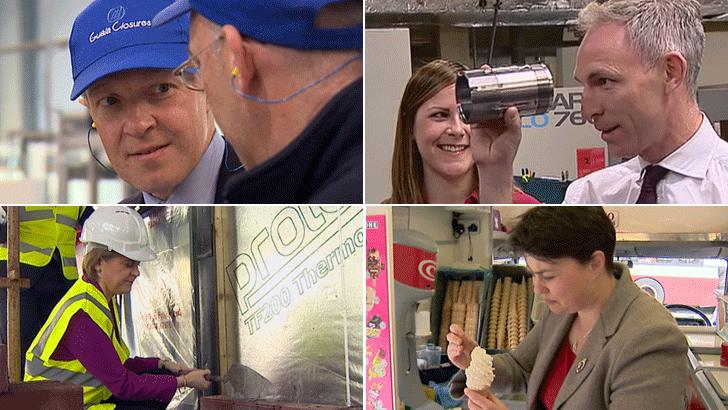Election 2015: Ed Miliband delivers his message
- Published
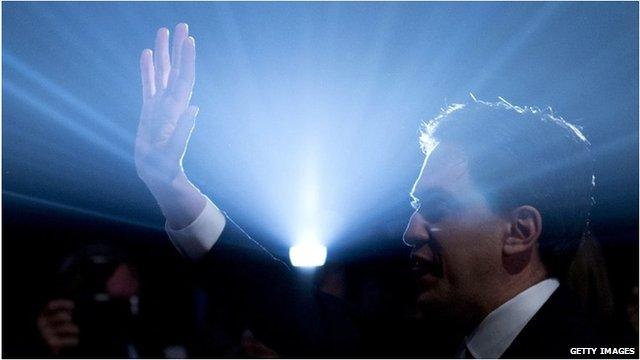
Ed Miliband had two key messages - Labour was strong on the economy and he was ready to be PM
Challenges in politics. One can either confront them or sidestep them. Launching the Labour manifesto, Ed Miliband opted for the former.
He has plainly calculated that his party's pitch features two potential weak spots, in terms of public perception. Rigour on the economy - and Mr Miliband's own credentials for leadership.
So he tackled them directly....
On the economy? No promises that were not fully costed. Nothing that required further borrowing. Even chiding the Conservatives for "unbelievable" pledges on NHS funding.
On Miliband, E? A promise to stand up for working people if he is granted the keys to Downing Street. That accompanied by a personal attack on the current incumbent for allegedly favouring the powerful.
The issue of Mr Miliband's leadership qualities or otherwise is, presumably, consistent across the Border. You either rate him or disdain him, according to taste.
However, the issue of the economy is driven by pre-existing emotions and external events, not least the positions adopted by competing parties. Which may result in cross-border differentials.
Ed Miliband's emphasis on economic rigour is, of course, largely driven by memories of the financial crisis which accompanied Labour's last term in office. (Note "accompanied". Labour would firmly disown any causal link.)
Mr Milband wants to pre-empt any suggestion that driving down the deficit and thus debt would not be a priority for him. At today's launch, he definitely mentioned the deficit.
Key priorities
Labour
Main pledges
- Responsibility "triple lock": fully funded manifesto, cut the deficit every year, balance the books as soon as possible in next Parliament
- Extra £2.5bn for NHS, largely paid for by a mansion tax on properties valued at over £2m
- Raise minimum wage to more than £8ph by 2019
- No rise in VAT, NI or basic and higher rates of income tax
- Access to childcare from 8am-6pm for parents of primary school children
- Freeze energy bills until 2017 and give energy regulator new powers to cut bills this winter
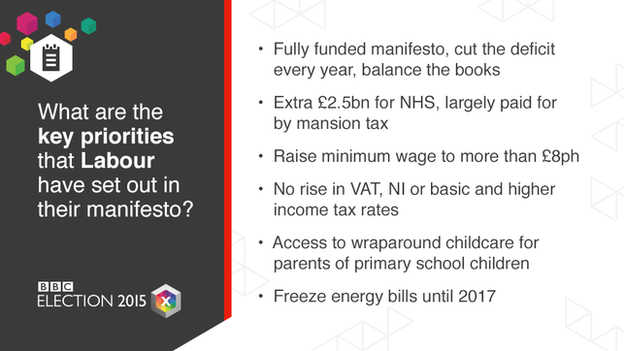
However, there is a second factor. Labour is fighting to oust the Tories from Downing Street. The emphasis on rigour is designed to avoid giving the impression that Labour would loosen control of the household budget.
It is a message, therefore, which is partly calibrated by Labour's Conservative opponents. In England. In Scotland, Labour is engaged in a battle with another party altogether, the SNP. A party which wants to increase spending, by 0.5 per cent in real terms per annum while still, they insist, reducing the deficit.
That gives Labour at the very minimum a presentational problem. A message which is predicated upon countering the Tories - who promise further spending constraint - may have to be redrafted to fit circumstances in Scotland where the party's chief opponent wants spending to rise.
Jim Murphy is adamant that there is no practical distinction between the comments offered by himself and those tendered by Ed Balls. However, there is perhaps a difference in emphasis.
Mr Balls, countering Tories, talks up the rigour - alongside social justice. Mr Murphy - facing Nationalists - talks social justice and tends to play down the rigour.
To be fair to Mr Murphy, he has cited the Institute for Fiscal Studies to the effect that there might be no need for Labour to introduce "further" cuts beyond the present year, 2015/16, in order to achieve the aim of eliminating the current account deficit by the end of the next Westminster Parliament.
Note the words. Further - that is, beyond those presently scheduled. Current account - that is, not including spending for capital investment.
However, the IFS also observed that about £6bn of cuts might be required if Labour is to adhere to the more truncated timetable for balance set out in the Charter for Budget Responsibility, which the party has endorsed. The IFS note adds that "there is real uncertainty" about the path to be followed for the public finances.
Opportunity to grow?
Understandably, Mr Murphy tends not to find space in his speeches for these latter points from the IFS. To be fair for a second time, he is not alone in such verbal parsimony.
In responding to the SNP attacks today, Mr Murphy returns to the point which Labour leaders have been pursuing persistently. That the same IFS has detected a deficit of £7.6bn in Scotland's finances under full fiscal autonomy (FFA): a level which is proportionately higher than for the UK as a whole.
Nationalists insist that FFA offers an opportunity, not a dilemma: an opportunity to grow the Scottish economy with tailored policies.
The Tories today argued that further carefully targeted cuts - including on welfare - were necessary to sustain the drive to eliminate the deficit. The Liberal Democrats offered a middle course: less stringent cuts than they said would occur under the Tories; lower borrowing than they attributed to Labour and the SNP.
Tax. Spending. Welfare. Cuts. The substance and core of this election.
- Published13 April 2015
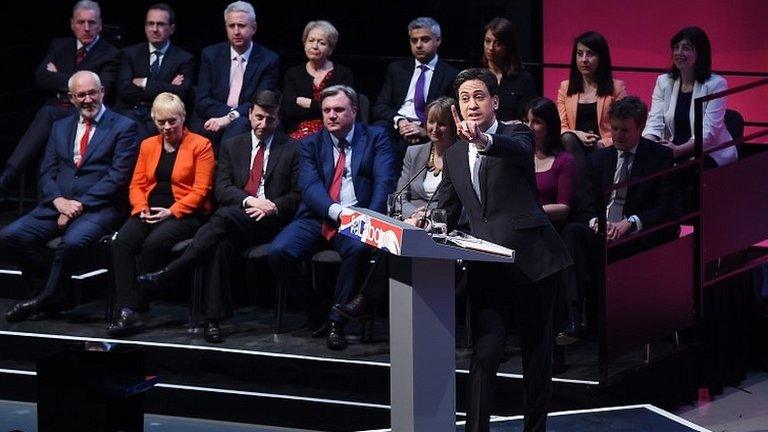
- Published13 April 2015
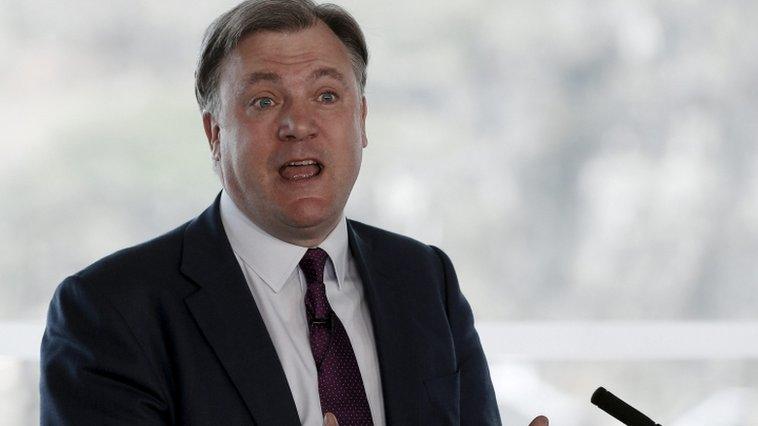
- Published13 April 2015
